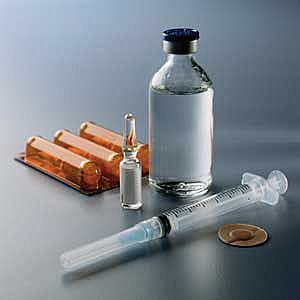 |
SIGNS OF DIABETES:
|
For a number of sailors, living with diabetes is a daily reality. People who have diabetes know they do and usually can manage it well. However, sometimes, things can go wrong. When blood sugars get out of balance, one of 2 conditions can occur:
- hypoglycemia (low blood sugar) or
- hyperglycemia (high blood sugar)
It is important to recognize these signs of diabetes. Both need to be treated immediately.
HYPOGLYCEMIA (Low Blood Sugar)
Hypoglycemia can develop rapidly, resulting from stress, taking too much insulin, skipping a meal or consuming alcohol.
Signs of Hypoglycemia
- weakness
- dizziness
- excessive sweating
- pale, cold, moist skin
- headache
- poor coordination or uncontrolled trembling
- seizures
Treatment
Give the victim any food or drink that is high in sugar. Examples would be fruit juice, candy bars, pop or soda, or water containing several spoonfuls of dissolved sugar. If the victim is unconscious, place sugar directly under the tongue.
HYPERGLYCEMIA
(High Blood Sugar)
Hyperglycemia comes on much slower. It results from insufficient insulin resulting in steadily increasing blood sugar levels. Untreated, it can result in a diabetic coma.
Signs of Hyperglycemia
- excessive thirst
- excessive hunger
- frequent urination
- dry mouth
- nausea
- vomiting
Treatment
Administer insulin or other medication that has been prescribed.
This is where it is important to know of any medical problems that someone on board could face and where required medications are kept.
Return from SIGNS of DIABETES to FIRST AID
Check out our marine supplies store for First Aid supplies and KN95 Face Masks
Name Brands Quality Products
Click the STORE button on the navigation bar
The Complete Log Book For Cruising Sailors
written by a sailor for sailors

a practical, easy-to-use yet thorough format to record all of the necessary information about your boat and any cruises you take – whether exploring home waters or voyaging to distant ports across the Great Lakes.
.
Click here for more details